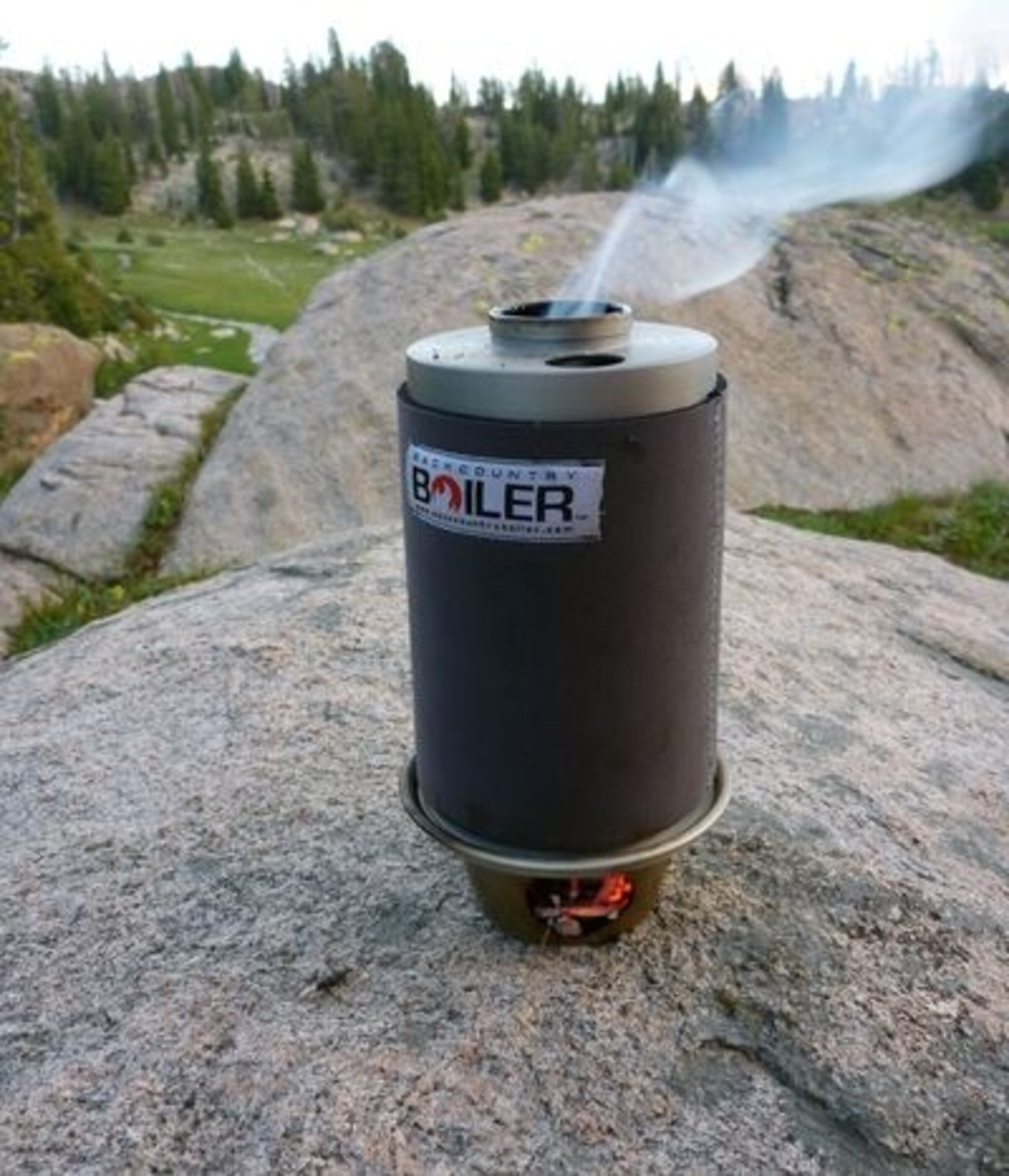Text and photo by Ryan Hutchins-Cabibi, Senior Field Instructor and Lightweight Backpacking Pro at the National Outdoor Leadership School (NOLS)
As a tinkerer of gear, I get really excited when someone decides to build something they want that doesn’t exist. In the case of engineer Devin Montgomery, that something was a wood-fired boiler small and light enough to take backpacking in an ultralight style. For people cooking one-pot meals, “just add water” meals, or “boil in a bag” food, the ability to travel without fuel is an unquestionable advantage in the field. The Backcountry Boiler is an efficient, eco-friendly (it burns renewable fuels!) stove system that evolves the lightweight kit to the next level.
The Backcountry Boiler is elegant in design and function. It allows a backpacker to travel without lugging petrochemical-based fuels by burning natural renewable fuels they find along the way. Weighing in at 8.8 ounces, the boiler is heavier than some alcohol stoves but is comparable to many other wood burners. But unlike other wood burners, the boiler can also be used as a water bottle with the included stopper!
The boiler functions on the simple chimney effect. A small fire is built in the burner base using tinder. It’s easier to light the fire and then place the boiler on the base. Be sure that the stopper is not plugging the water fill hole, or the vessel could explode.
The Backcountry Boiler proves to be surprisingly fast. Boiling two cups (16oz./500ml) of water multiple times per day over six days on a NOLS Lightweight Backpacking Course, I consistently had boil times of five minutes or less at altitudes between 8,000-10,000 feet, often using frigid water. This volume of water is ideal for “boil in a bag” type meals.
It’s important to note that the boiler doesn’t actually boil your food in the boiler its self, but boils the water to be added to your dehydrated meal in either a bag designed for this, or another container, perhaps your titanium mug.
